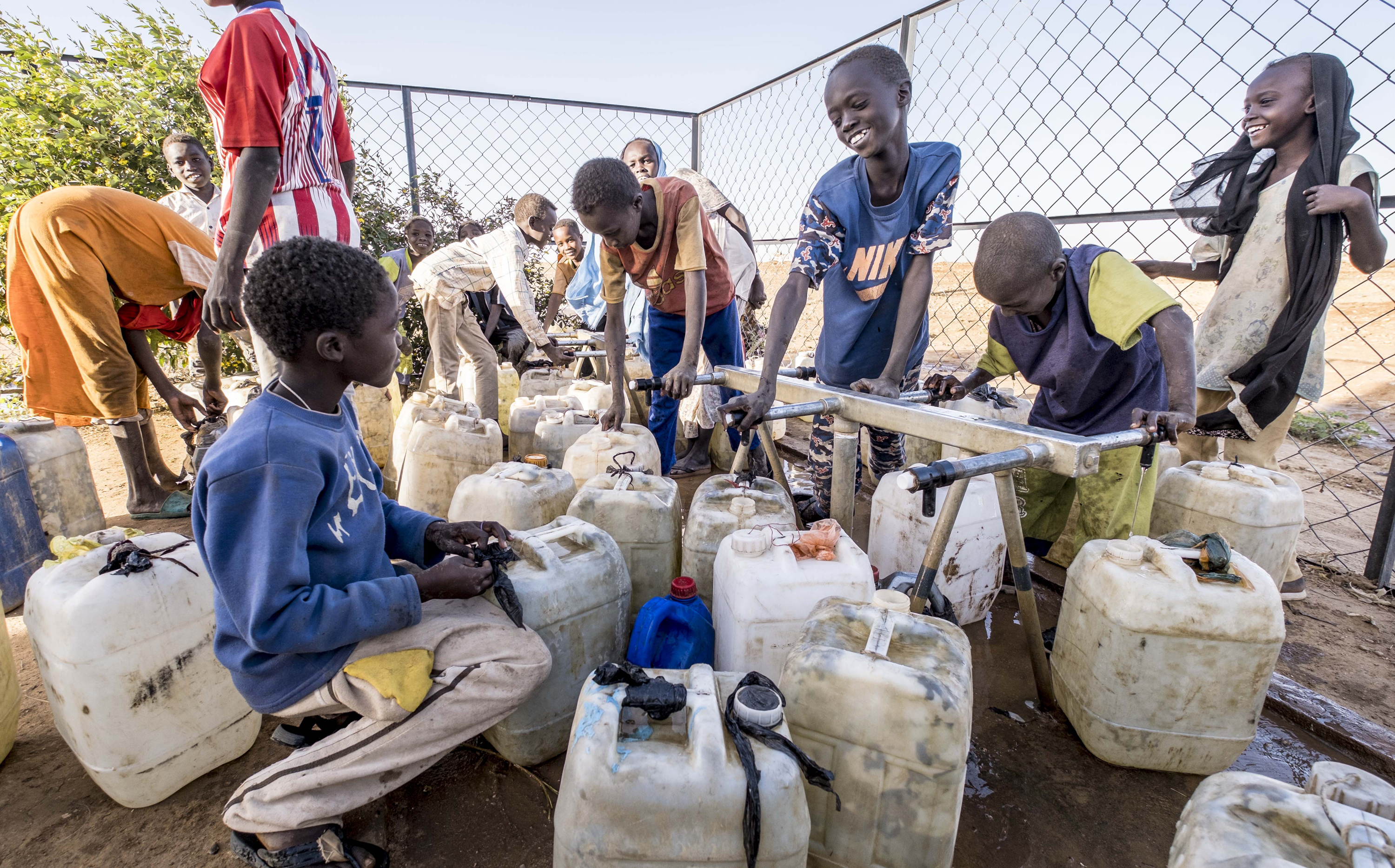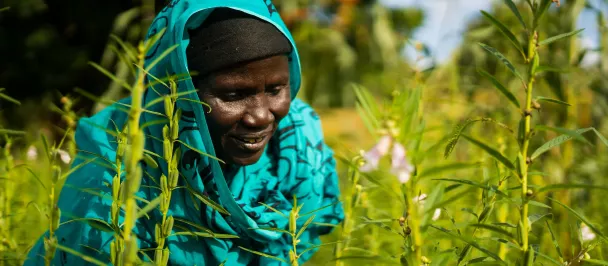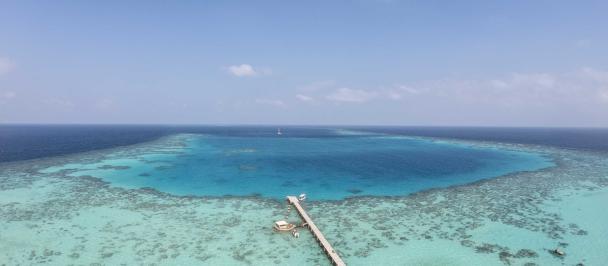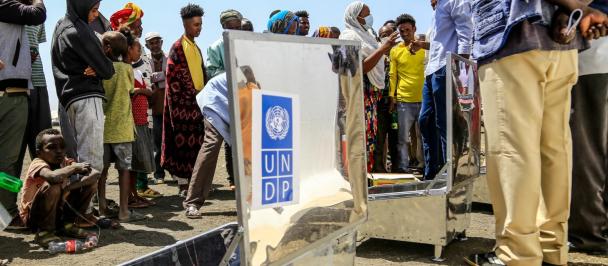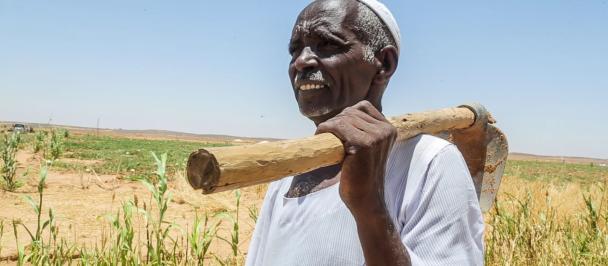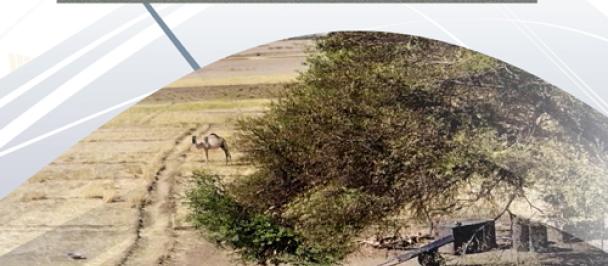Part of the new GCF grant will support sustainable and clean water access for drinking, livestock and irrigation, reaching 200,000 households, in areas facing severe climate and weather change challenges, like this existing UNDP project in North Darfur. Photo/UNDP
23 August 2020, Sudan – The Green Climate Fund on Friday approved US$25.6 million in new funding for an innovative climate resilience project in Sudan, designed to promote agriculture, health, and food and water security. Around 1.2 million people from subsistence farming and nomadic pastoralist communities across nine states are set to directly benefit, with an additional 2.5 million people to benefit indirectly.
"Addressing the impact of climate change is a collective responsibility. We as a Government recognise this global responsibility and are committed to protecting the people of Sudan from the risks we are currently facing,” said Sudan’s Prime Minister, Dr. Abdalla Hamdok. “Left unchecked, climate change will derail our nation’s efforts to end poverty and conflict across the country.”
“With Green Climate Fund financing, and support from UNDP, the Sudanese Government is working to build resilient economies and livelihoods. This will help us minimise the impact of COVID-19, and put our people and planet first.”
Increasing changes in climate are leading to variations in rainfall and temperatures across Sudan’s arid and semi-arid drylands, pushing lives and livelihoods to breaking point.
Crop failures, the death of livestock, drought and other climate-related impacts are deepening poverty and reducing the capacity of people, communities and authorities to deal with other interconnected risks, such as COVID-19 and conflict.
Working at national and local levels, the new project will help Sudan address the challenges. Led by Sudan’s Higher Council for Environment and Natural Resources with support from the United Nations Development Programme (UNDP), the five-year project will provide deliver training and equipment, rehabilitate land for sustainable use, introduce new climate-resilient practises, and construct infrastructure such as wells, dams and water storage.
“This project will improve health, food and water security for 3.7 million people in Sudan, safeguarding them against the worsening, life-threatening impacts of a changing climate, while building resilience and infrastructure for the vital agriculture sector”, said UNDP Resident Representative, Selva Ramachandran.
“At the same time, together we will ensure institutional and community capacity is improved, vulnerable groups like women and youth receive targeted support, and Sudan’s natural resources are protected.”
Professor Rashid Hassan, Secretary General of the Higher Council for Environment and Natural Resources, said: “We are proud to launch this project, supporting the Sustainable Development Goals and Sudan’s Nationally Determined Contribution to the Paris Agreement. Importantly, it is a country and community-led initiative: the people and areas receiving support, and the needs being addressed, were identified after a comprehensive consultation process involving Federal and State authorities, communities, NGOs, the private sector, research institutions and relevant unions.”
Under the project, approximately 211,000 households will benefit from enhanced food production. This will include the introduction of climate-resilient seeds, training on the use and management of water resources, and the introduction of women’s farms and home gardens.
Towards building gender equality, the project will focus on women’s micro-finance, training and food security initiatives, as well as empowering them in decision-making through the formation of women groups.
In protecting life on land, the project will establish communal reserves used for grazing, rehabilitate 4,500 hectares of rangelands, and introduce sustainable livestock, agroforestry and land-management practices.
Access to clean water is an essential component in preventing the spread of diseases such as COVID-19. Improved access for drinking, cooking and cleaning, as well as livestock and irrigation will reach 200,000 households. To achieve this, the project will construct and rehabilitate wells and small-scale irrigation, sand dams, and water storage infrastructure.
The project leverages US$15 million in co-finance from Sudan’s Federal Ministry of Agriculture and Natural Resources, and a $540,000 grant from UNDP.
UNDP’s support for the initiative is part of its efforts to drive a new ‘Green Deal’ in Sudan, ensuring climate protection and mitigation, including the introduction of renewable energy in agriculture, health and rural communities; and reducing reliance on fossil fuels.
Click here for the Arabic version.
### ### ###
Additional notes to editors
The ‘Building resilience in the face of climate change within traditional rainfed agricultural and pastoral systems in Sudan’ project will support 138 villages across West Darfur, Central Darfur, East Darfur, Western Kordofan, South Kordofan, Kassala, Red Sea, Northern, and Khartoum states.
Links for further information:
- UNDP Sudan
- GCF Sudan
- UNDP Human Development Report Sudan
- Climate Risk Finance for Sustainable and Climate Resilient Rain-fed Farming and Pastoral Systems
- Implementing Priority Adaptation Measures to Build Resilience of Rainfed Farmer and Pastoral Communities
- NAPA Priority Interventions to Build Resilience in the Agriculture and Water Sectors to the Adverse Impacts of Climate Change in Sudan
Contacts
William Seal
Head of Communications
UNDP Sudan
will.seal@undp.org
+249 9009 21412
محمد عثمان
ضابط شؤون اتصال
برنامج الأمم المتحدة الإنمائي
mohammed.osman@UNDP.org
0114992214
About UNDP
UNDP partners with people at all levels of society to help build nations that can withstand crisis, and drive and sustain the kind of growth that improves the quality of life for everyone. On the ground in nearly 170 countries and territories, we offer global perspective and local insight to help empower lives and build resilient nations. www.undp.org.
About GCF
The Green Climate Fund (GCF), the world’s largest fund dedicated to climate finance, supports developing countries to reduce their carbon emissions and strengthen their resilience to climate change. Set up by the United Nations Framework Convention on Climate Change (UNFCCC) in 2010, GCF is an operating entity of the UNFCCC’s Financial Mechanism that also serves the Paris Agreement. GCF drives climate finance to where it is needed most: in the Least Developed Countries, Small Island Developing States, and African States.

 Locations
Locations